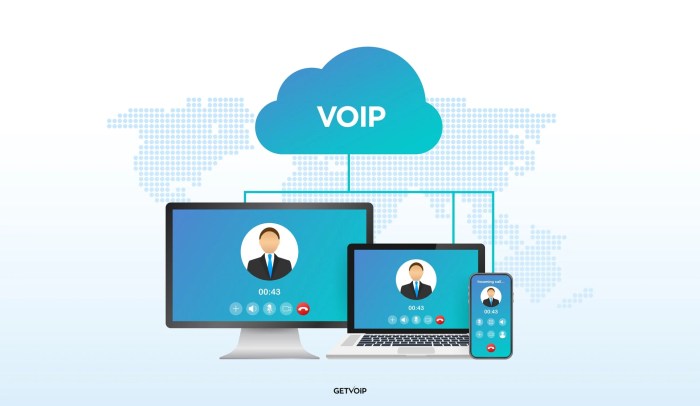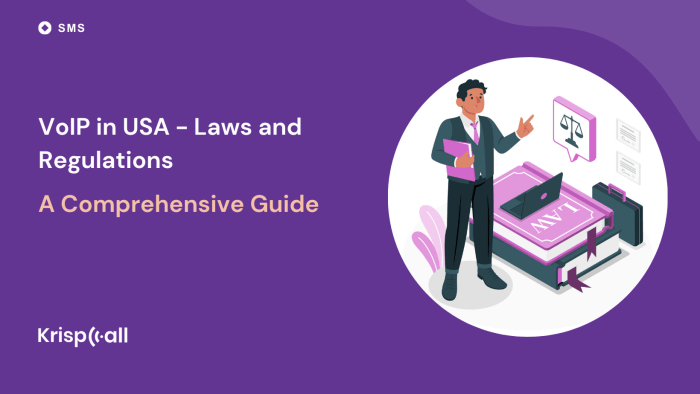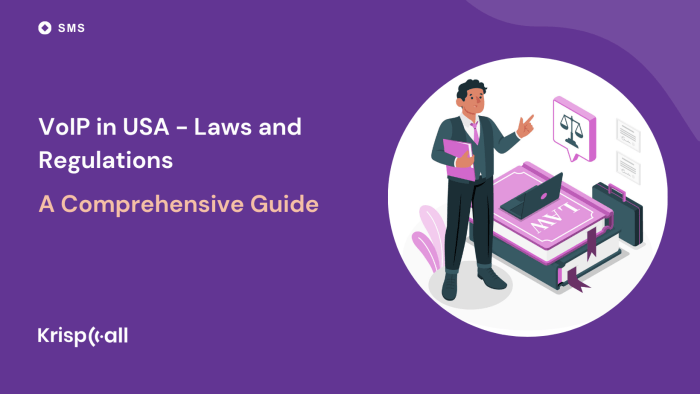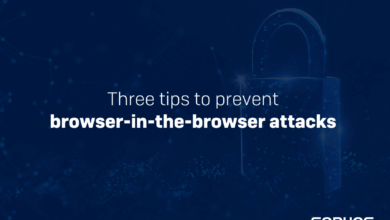Government Oversight and Protecting VoIP A Deep Dive
Government oversight and protecting VoIP is crucial in today’s interconnected world. VoIP, or Voice over Internet Protocol, has revolutionized communication, but its widespread adoption raises important questions about security, privacy, and regulation. This in-depth look examines the complexities of government oversight of VoIP, from defining the scope of regulation to understanding the impact on service providers and users.
This exploration delves into the historical evolution of VoIP regulation, highlighting key legal frameworks and potential conflicts between national and international laws. We’ll analyze the security vulnerabilities inherent in VoIP systems and the critical role of encryption and authentication in safeguarding communications. Further, we’ll examine the challenges faced by VoIP service providers, the public interest concerns regarding VoIP, and the complexities of international cooperation in regulating this rapidly evolving technology.
Defining Government Oversight of VoIP
VoIP, or Voice over Internet Protocol, has revolutionized communication, enabling affordable and globally accessible phone calls. However, this technological advancement necessitates careful consideration of government oversight. The digital nature of VoIP blurs geographical boundaries and traditional regulatory frameworks, creating unique challenges for governments seeking to balance innovation with public safety and consumer protection.Government oversight of VoIP involves a complex interplay of national and international regulations, addressing issues such as security, privacy, and the potential for misuse.
This oversight encompasses a broad spectrum of activities, from enforcing existing telecommunications laws to developing new ones tailored specifically to the characteristics of VoIP services. Different jurisdictions have approached this oversight with varying degrees of intensity, reflecting differing priorities and technological maturity.
Forms and Methods of Government Regulation
Government regulation of VoIP services manifests in various forms, including licensing requirements, content restrictions, and technical standards. Licensing ensures accountability and allows for monitoring of service providers. Content restrictions address potential misuse of the platform, like hate speech or harassment. Technical standards guarantee interoperability and quality of service. Furthermore, regulations may address aspects like data retention, user privacy, and security protocols.
Historical Evolution of Government Involvement
Government involvement in regulating VoIP has evolved alongside the technology’s development. Initially, VoIP services were largely unregulated, treated as extensions of existing telecommunications frameworks. As the use of VoIP grew and its potential impacts became more apparent, governments started to recognize the need for specific regulations. This evolution is driven by factors like the increasing reliance on VoIP for critical communications, the potential for malicious activity, and the desire to protect consumers.
Early examples demonstrate the struggle to adapt existing laws to a new technology, often leading to temporary regulatory ambiguities.
Legal Frameworks and Statutes
Different jurisdictions have implemented varying legal frameworks and statutes to address VoIP. Some countries have adopted comprehensive telecommunications acts that explicitly address VoIP services. Others have relied on existing laws, applying them to VoIP through interpretation or amendment. Examples include the Telecommunications Act of 1996 in the United States, which has been a major influence on how VoIP is regulated globally, and similar legislation in other nations.
The application of these laws often creates conflicts in areas like international calls and data transfers.
Government oversight is crucial for protecting VoIP systems, ensuring secure communication channels. However, companies like Dell, which are sending most new jobs overseas ( dell sends most new jobs overseas ), raise concerns about the future of domestic IT jobs and potentially the security of data handled by those overseas teams. This impacts the need for stronger regulations around VoIP security and oversight, ultimately impacting consumers and businesses alike.
Conflicts Between National and International Regulations
International VoIP traffic presents unique challenges for governments. Differences in national regulations can lead to inconsistencies in enforcement and application. For instance, data retention policies in one country may conflict with the privacy laws of another. These conflicts often arise when VoIP service providers operate across borders, creating complex jurisdictional issues. These issues necessitate international cooperation and standardization to ensure a consistent and fair regulatory environment for VoIP.
Government Oversight Mechanisms
| Oversight Mechanism | Scope | Impact on VoIP Service Providers |
|---|---|---|
| Licensing Requirements | Ensuring accountability and monitoring of service providers | Increases compliance costs and administrative burden; fosters a regulated market. |
| Content Restrictions | Addressing potential misuse like hate speech or harassment | Can limit freedom of expression; creates challenges in content moderation. |
| Technical Standards | Guaranteeing interoperability and quality of service | Requires investment in compliant infrastructure; fosters interoperability across networks. |
| Data Retention Policies | Addressing user privacy and security concerns | Creates complexities in managing data across borders; compliance can be expensive. |
| Security Regulations | Protecting sensitive communications and preventing malicious activity | Increases security costs; requires adherence to robust security measures. |
Protecting VoIP Security and Privacy

VoIP, while offering convenience and cost-effectiveness, presents unique security challenges. The very nature of voice over IP, relying on public networks, exposes sensitive communications to potential vulnerabilities. Understanding these vulnerabilities and implementing robust security measures is paramount to preserving the integrity and privacy of VoIP conversations.Protecting the security and privacy of VoIP communications is a multifaceted endeavor, demanding a comprehensive approach.
This involves addressing inherent vulnerabilities, employing various security protocols, and understanding the role of encryption and authentication. Careful consideration must be given to the potential for breaches and their consequences, alongside best practices for maintaining user privacy.
Security Vulnerabilities in VoIP Systems
VoIP systems are susceptible to a range of security threats, stemming from their reliance on public networks and the inherent complexities of the technology. These vulnerabilities often manifest in the form of eavesdropping, tampering with calls, or denial-of-service attacks. Compromised VoIP infrastructure, particularly vulnerable endpoints, can expose the entire network.
Approaches to Securing VoIP Communications
Several approaches are available to bolster VoIP security. These include implementing robust firewalls to control network access, using intrusion detection systems to identify and respond to suspicious activity, and employing strong authentication methods to verify the identity of users. Furthermore, ensuring the security of the VoIP infrastructure itself is critical, encompassing the servers, networks, and any other related components.
Role of Encryption and Authentication in VoIP Security
Encryption plays a pivotal role in protecting the confidentiality of VoIP communications. It scrambles the data transmitted over the network, rendering it unreadable to unauthorized listeners. Authentication mechanisms verify the identity of communicating parties, mitigating the risk of impersonation and ensuring the integrity of the conversation. Strong encryption and robust authentication protocols are essential to secure VoIP communication channels.
Examples of Security Breaches and Their Consequences, Government oversight and protecting voip
Numerous security breaches have targeted VoIP services, highlighting the need for proactive security measures. These breaches, often resulting from vulnerabilities in the underlying infrastructure or inadequate security protocols, can compromise sensitive information, lead to financial losses, and damage reputation. The consequences can be particularly severe in industries that rely heavily on VoIP for critical communication. For instance, a VoIP provider experiencing a significant breach might face customer data exposure, financial penalties, and legal action.
Best Practices for Safeguarding VoIP User Privacy
Protecting user privacy is a crucial aspect of VoIP security. This involves implementing strong privacy policies, educating users about security risks, and ensuring compliance with relevant data protection regulations. Transparency in data handling practices and adherence to user consent policies are vital.
Comparison of VoIP Security Protocols
| Protocol | Description | Effectiveness |
|---|---|---|
| Secure Real-time Transport Protocol (SRTP) | An enhanced version of RTP that incorporates encryption and authentication. | High, particularly for confidentiality and integrity. |
| Transport Layer Security (TLS) | A widely used protocol for secure communication over networks. | High, widely deployed, and interoperable. |
| Secure Socket Layer (SSL) | A protocol for secure communication over networks. | High, widely deployed, though newer protocols offer improved security features. |
| IPsec | A suite of protocols for securing IP communications. | High, provides strong security features, but can be complex to implement. |
This table provides a general comparison, and the effectiveness of each protocol can vary depending on implementation details and the specific security requirements of the VoIP system.
Impact on VoIP Service Providers
VoIP service providers are increasingly facing the challenge of navigating a complex regulatory landscape. Government oversight, while intended to protect consumers and ensure service quality, often translates into significant compliance costs and operational adjustments for these companies. Understanding the specific impacts on their business models is crucial to assessing the overall health and future of the VoIP industry.
Challenges Faced by VoIP Service Providers
VoIP service providers encounter numerous challenges due to government oversight. These include stringent requirements for data security and privacy, necessitating investments in robust security infrastructure. Compliance with regulations like the GDPR (General Data Protection Regulation) and similar laws across various jurisdictions requires extensive modifications to existing systems and processes. Furthermore, evolving regulations regarding call record retention and access often impose new burdens, requiring the adaptation of data storage and retrieval systems.
Impact of Compliance Costs on Business Models
Compliance costs can significantly impact VoIP service providers’ business models. These costs often manifest as increased operational expenses, including personnel training, software upgrades, and hardware replacements. The financial burden of compliance can lead to a decrease in profitability, especially for smaller providers with limited resources. The need to invest in security measures often results in a higher cost per call, which can affect pricing strategies and market competitiveness.
Strategies to Mitigate the Financial Burden
Several strategies can help VoIP service providers mitigate the financial burden of regulatory compliance. One key approach is to leverage cloud-based security solutions, which can offer cost-effective and scalable security measures. Partnerships with specialized security firms can provide expert advice and implementation support, reducing the need for in-house expertise and streamlining the compliance process. Furthermore, adopting a proactive approach to regulatory updates, staying informed about upcoming legislation, and preparing for potential changes in advance can minimize unexpected costs.
Effect of Government Oversight on VoIP Service Provider Innovation
Government oversight can potentially stifle innovation in the VoIP service provider industry. The need to meet strict compliance standards may limit the development of new features and services that might otherwise be pursued. The upfront investment required for compliance can divert resources away from research and development, hindering the introduction of innovative solutions. Additionally, the complexity of compliance procedures can discourage smaller companies from entering the market, potentially reducing competition and innovation.
Costs Associated with Implementing Security Measures
Implementing various security measures for VoIP services involves different costs. The following table illustrates estimated costs associated with different security measures, categorized by their level of complexity and functionality.
| Security Measure | Implementation Cost (USD) | Description |
|---|---|---|
| Basic Encryption | $5,000 – $20,000 | Implementing basic encryption protocols for call transmission. |
| Advanced Encryption & Intrusion Detection | $20,000 – $100,000 | Implementing advanced encryption techniques and intrusion detection systems. |
| Multi-Factor Authentication & Data Loss Prevention | $50,000 – $250,000 | Implementing multi-factor authentication for user accounts and data loss prevention mechanisms. |
| Security Audits & Penetration Testing | $10,000 – $50,000+ | Regular security audits and penetration testing to identify and mitigate vulnerabilities. |
Note: Costs are estimates and can vary significantly based on the specific provider, scale of operations, and chosen security solutions.
Government oversight of VoIP is crucial for protecting sensitive communications, but the complexities of modern technology, like the recent news of COLSA to build Apple’s Xserve supercomputer , highlight the ongoing need for robust safeguards. This development underscores the need for evolving regulations that keep pace with technological advancements, ensuring that VoIP remains secure and accessible while adhering to privacy standards.
Ultimately, balancing innovation with security is key for safeguarding VoIP.
Public Interest and User Rights in VoIP
VoIP, or Voice over Internet Protocol, has revolutionized communication, offering accessibility and affordability. However, this convenience comes with complexities regarding public interest and user rights. Governments worldwide grapple with balancing the need for oversight to protect consumers and national security with the fundamental rights of VoIP users, including privacy and data protection. This necessitates a careful examination of the interplay between these interests.VoIP services are increasingly vital for communication, impacting various aspects of modern life.
Their use extends from personal interactions to critical business transactions and even emergency communications. This widespread adoption brings forth a need to address the associated rights and responsibilities within a framework that protects both the public interest and individual freedoms. Navigating these intricate considerations is paramount for the continued development and responsible use of VoIP technology.
Public Interest Concerns
Public interest concerns regarding VoIP services stem from the potential for misuse, particularly in the context of national security and consumer protection. Security breaches, fraud, and the facilitation of illegal activities are potential risks that necessitate governmental oversight. The ability of VoIP services to evade traditional telecommunications regulations raises concerns about the lack of accountability and transparency. These concerns underscore the need for robust regulatory frameworks.
User Rights in Different Jurisdictions
VoIP users’ rights vary significantly across jurisdictions. These rights often center around privacy and data protection. Some countries have comprehensive data protection laws, while others have less developed regulations. The interpretation and enforcement of these laws differ, creating a complex landscape for VoIP users. Understanding these variations is crucial for VoIP service providers and users alike.
Government oversight of VoIP is crucial, especially when considering its potential role in national security. While ensuring privacy is paramount, a delicate balance needs to be struck, particularly when linking it to initiatives like fighting terrorism through technology. Ultimately, robust oversight frameworks are essential to protect VoIP while safeguarding against misuse, keeping both security and privacy in check.
Balancing Public Interest and User Privacy
Striking a balance between public interest concerns and user privacy rights is a significant challenge. Governments need to establish regulations that are proportionate to the potential risks while safeguarding fundamental freedoms. A critical consideration is the potential for overreach, where stringent regulations could stifle innovation and limit user choice. This requires careful consideration of the specific risks and the potential impact on user experience.
Impact on User Experience and Access
Government oversight has impacted user experience and access to VoIP services in various ways. Stricter regulations may lead to higher service costs, limitations on features, or even restrictions on service availability in certain regions. Conversely, some regulations aim to enhance user experience by improving security or promoting transparency. The impact on specific services will vary depending on the nature of the regulations.
Educating VoIP Users
Educating VoIP users about their rights and responsibilities under government regulations is essential. Clear and accessible information about data protection laws, privacy rights, and reporting procedures can empower users to make informed choices. This education should cover topics such as data security practices, reporting potential misuse, and understanding the implications of different jurisdictions.
Comparison of User Rights
| Jurisdiction | Privacy Rights | Data Protection | National Security Concerns |
|---|---|---|---|
| United States | Varying by state and federal laws | Fairly comprehensive, but with ongoing debate | Significant focus on national security |
| European Union | Strong emphasis on data privacy | GDPR provides comprehensive data protection | Balancing privacy and security remains a challenge |
| China | Limited emphasis on individual privacy | Regulations exist, but enforcement can vary | Significant emphasis on national security concerns |
This table provides a rudimentary comparison. Specific details and nuances within each jurisdiction are extensive and require further research.
International Cooperation and VoIP Regulations
VoIP, with its global reach, transcends national borders, making international cooperation crucial for effective regulation. This necessitates a delicate balance between maintaining national sovereignty and fostering a unified approach to security and privacy concerns. Different countries have varying legal frameworks and priorities, which creates challenges in establishing harmonized VoIP regulations.The lack of consistent international standards for VoIP can lead to fragmented and conflicting regulations.
This can create significant obstacles for VoIP service providers operating across multiple jurisdictions. Navigating the complexities of international laws and regulations is essential for maintaining operational efficiency and avoiding potential legal disputes.
Complexities of International Cooperation
International cooperation in regulating VoIP faces several hurdles. Differing legal traditions, technological advancements, and varying national priorities complicate the process of establishing common standards. National security concerns, economic considerations, and cultural norms all play a role in shaping each country’s approach to VoIP regulation. The dynamic nature of technology also presents a challenge, as new VoIP applications and services emerge frequently, requiring constant adaptation and review of regulations.
Harmonizing VoIP Regulations Across Countries
Harmonizing VoIP regulations across different countries is a significant challenge. Cultural and legal differences, along with diverse technological infrastructure, contribute to this complexity. Different countries may prioritize different aspects of VoIP, such as security, privacy, or consumer protection. Finding common ground and achieving consensus among nations is a complex diplomatic endeavor. Establishing a universal framework for data localization, jurisdiction, and dispute resolution is essential to fostering a more unified approach.
Role of International Organizations in Establishing VoIP Standards
International organizations play a vital role in developing and promoting VoIP standards. These organizations facilitate discussions and collaborations among nations, fostering a shared understanding of the technical and legal aspects of VoIP. The development of global standards can ensure interoperability and promote the efficient functioning of VoIP across borders. Examples of such organizations include the International Telecommunication Union (ITU), which works to establish technical standards and frameworks for telecommunications.
These organizations offer platforms for countries to share best practices and resolve common issues.
Examples of Successful International Collaborations
Several examples demonstrate the potential for successful international collaborations in addressing VoIP issues. These collaborations often focus on specific areas, such as combating VoIP fraud or promoting cross-border interoperability. Examples of successful initiatives could include joint investigations into VoIP-related crimes, or agreements on data exchange protocols for law enforcement agencies. While these examples might not be widely publicized, they highlight the potential for international cooperation to enhance the security and stability of VoIP networks.
Varying VoIP Regulations Across Countries and Regions
| Country/Region | Key VoIP Regulations | Specific Considerations |
|---|---|---|
| United States | Strong emphasis on consumer protection and security; varying regulations based on state. | Jurisdictional complexities, and differing levels of enforcement. |
| European Union | Focus on data protection and privacy, with regulations like GDPR. | Emphasis on user rights and data localization. |
| China | Strict regulations, often with emphasis on national security and censorship. | Significant restrictions on VoIP services and content. |
| India | Regulations focused on security, consumer protection, and telecom licensing. | Complex regulatory environment, with evolving policies. |
| Japan | Regulations related to telecommunications services, with a focus on service quality. | Balancing consumer rights with national interests. |
Emerging Trends and Future Considerations: Government Oversight And Protecting Voip
The landscape of VoIP is constantly evolving, driven by rapid technological advancements. Understanding these emerging trends is crucial for governments tasked with ensuring the security and privacy of VoIP communications while fostering innovation. This section delves into the future of VoIP, examining the impact of emerging technologies and the need for adaptable regulatory frameworks.
Emerging Technologies Impacting VoIP
VoIP is rapidly integrating with other technologies, creating a more complex and interconnected communication ecosystem. These integrations bring both opportunities and challenges. Cloud-based services are increasingly central to VoIP, leading to greater reliance on interconnected infrastructure. This increased reliance raises concerns about potential vulnerabilities and the need for robust security protocols. Internet of Things (IoT) devices are also becoming increasingly intertwined with VoIP systems, expanding the potential user base and the attack surface.
The proliferation of 5G and other next-generation networks promises faster speeds and enhanced capabilities, but also presents new security considerations.
Artificial Intelligence and Machine Learning in VoIP Oversight
AI and machine learning (ML) are poised to significantly impact VoIP oversight. AI-powered systems can analyze vast amounts of VoIP data to identify patterns indicative of malicious activity or potential threats. This capability can aid in fraud detection, cybersecurity incident response, and the identification of unusual patterns that might signal illicit activities. However, the use of AI raises important privacy concerns, requiring careful consideration of data collection and analysis practices.
Furthermore, the potential for bias in AI algorithms necessitates rigorous testing and validation to ensure fairness and equitable application in VoIP oversight. For example, an AI system trained on data from a particular region might not perform as well in another region, potentially leading to inaccuracies in detecting VoIP-related threats.
Regulatory Concerns Related to New VoIP Technologies
The convergence of VoIP with other technologies necessitates careful consideration of regulatory implications. The increasing reliance on cloud-based services and IoT devices introduces complexities regarding jurisdiction and enforcement. Questions arise about who is responsible for overseeing security and privacy when data traverses multiple jurisdictions. New regulatory frameworks need to be adaptable to address these evolving challenges and ensure the protection of users’ rights.
International cooperation is crucial to establish consistent standards and avoid regulatory fragmentation in the context of global VoIP services.
Proactive Adaptation of Regulatory Frameworks
Regulatory frameworks must adapt proactively to accommodate the evolving VoIP landscape. Instead of reacting to emerging issues, governments should anticipate and address potential challenges before they escalate. This requires ongoing dialogue between policymakers, industry experts, and technology developers to anticipate the implications of new technologies and adjust regulations accordingly. For instance, proactive engagement with standards bodies and industry organizations can help shape future technologies in a way that is aligned with regulatory goals.
A focus on establishing clear guidelines for data security and user privacy in the context of cloud-based VoIP is essential.
Government Adaptation to New Technologies
Governments worldwide are beginning to adapt their approaches to new technologies in the context of VoIP. Some are implementing or strengthening data protection laws to address the concerns associated with cloud-based services and the increasing use of AI in security. Others are actively engaging in international cooperation to establish shared standards and practices for VoIP security and privacy.
These initiatives demonstrate a growing recognition of the need for proactive regulatory responses to the evolving VoIP landscape.
Future Implications of Emerging Technologies on Government Oversight
| Emerging Technology | Potential Impact on Government Oversight | Examples |
|---|---|---|
| Cloud-based VoIP | Increased complexity in jurisdiction, enforcement, and data security | Requires cross-border cooperation for enforcement |
| AI-powered analysis | Enhanced threat detection but raises privacy concerns | Need for ethical guidelines for data usage and algorithm bias |
| IoT integration | Expansion of attack surface and potential vulnerabilities | Requires security protocols for IoT devices connected to VoIP |
| 5G and next-gen networks | Faster speeds but new security considerations | Enhanced encryption and authentication protocols needed |
| Blockchain technology | Potential for secure and transparent VoIP transactions | Requires investigation of its applicability to VoIP transactions |
Closing Summary

In conclusion, navigating the landscape of government oversight and protecting VoIP requires a comprehensive understanding of the technical, legal, and societal factors at play. From the security protocols to the user rights, this exploration highlights the multifaceted nature of this crucial topic. The need for ongoing adaptation and international cooperation is clear, as VoIP continues to evolve and impact our lives in profound ways.







